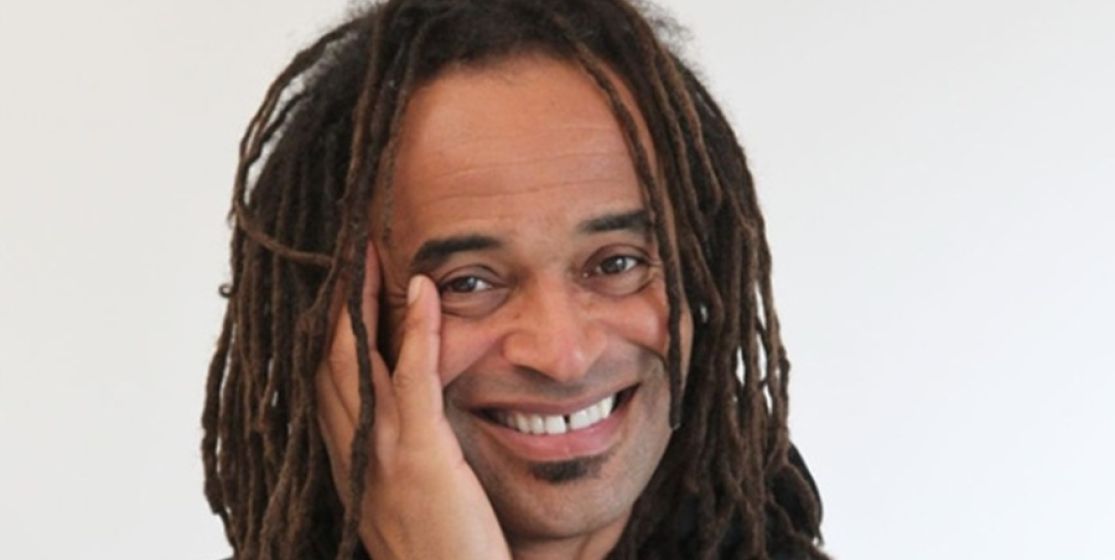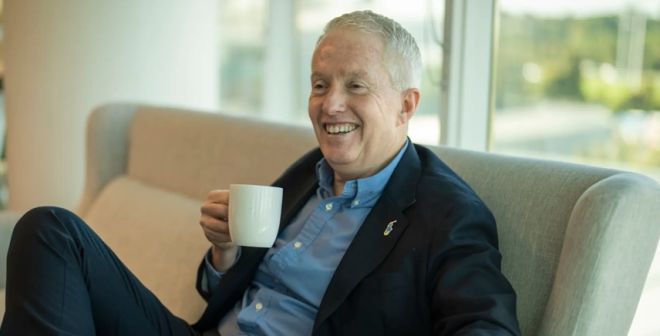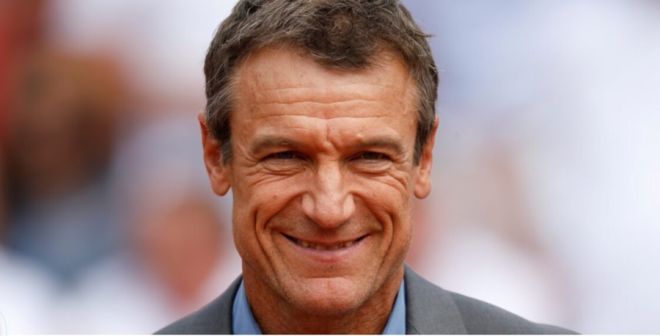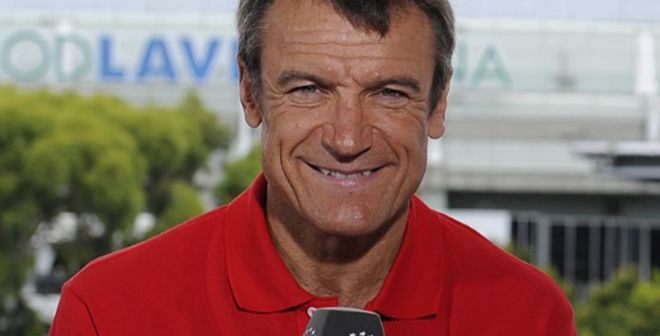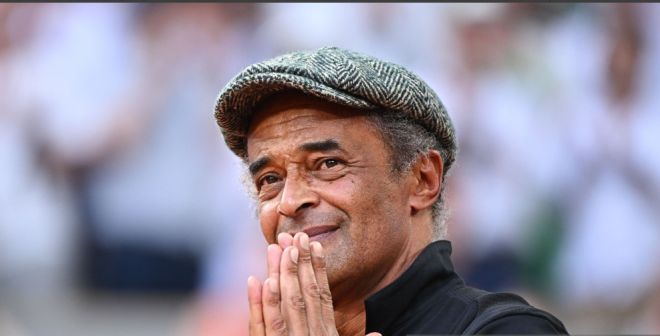PART TWO
Q. I just find it amusing that nowadays the young people know you more as a musician than really as a tennis player.
YANNICK NOAH: Yeah, yeah. Well, that's, time flies. I have been doing more I mean, I started playing tennis, I was 8. I finished my career, I was 30. So, you're talking about 22 years. I have been doing music for 32 years.
And, yes, it's okay. You know, it's okay. This generation, I have so many moments where I go to, like, when I'm doing these inner city tennis programs when I go, and it's so many times the kids will say, Oh, he's playing well for a singer. He's playing well. I say, Well, yeah, I used to play, kids. Ask your parents. But that's, you know, that's time. That's the way it goes. That's my story.
Q. As far as the music is concerned, what inspires you with your music? If you had to compare it to tennis, which do you think would come out at No. 1? What would be your No. 1 priority? Would you regard yourself as a tennis player or as a musician? And just what inspires you with your music?
YANNICK NOAH: Well, let me put it this way: I think tennis was a way for me to express myself, a way for me to travel and go around the world, coming from where I was coming from. Tennis was a way for me to make myself a name.
As my personality, even though I was playing, was always a vision of a sensitive artist always. And it cost me. It cost me. Sometimes I was playing too much, you know, instead of sometimes working a little bit more.
You know, I'm talking in a spiritual/mental way. I was trying, I was practicing hard, but it was always a side of me that felt at one point a little bit in a box, because I used to dream of, you know, playing tennis on the court where there was no lines, for example. And it was still professional.
I was dreaming actually, at my house, I had a court with no lines, because I felt that you play tennis with someone, so for me it was, like, a totally different philosophy.
And I always had that in me somewhere. And when I was working with my psychologist back in the days where we were talking about, okay, what do I need in order to go from 5, 6, 7, 4, to 2 or 1, we were just sitting there, and I'm, like, nope. I don't want to do that.
So that was very easy for me, and we started to smile. I said, Okay, well, you go, this is a journey you decide, and this is where I want. But we still worked on being more aggressive in terms of the mentality, to be more selfish in terms of a mentality, in terms of being more, you know, killer instinct. We have more of this man/macho thing that I didn't have naturally.
When I turned it to music, it was and tennis definitely was a therapy for me. To play was therapy, because I learned a lot about myself, my strength, my weakness, what I wanted to do, what I could do, what I could not do.
But for sure, one thing was missing was more of a soft part of me, like a sensitive part of me. Because when I was playing, I was always, like, jamming with friends, you know, had friends, musician, and yes, the easy and the natural way was to rock 'n roll and have the posture of the rock 'n roll leader, the posture of the man. The man, you know.
And I missed my mom side, in a way. It's like very psychology. For me, singing was a therapy where all of a sudden I could talk about my weaknesses, I can talk about love, I can talk about hesitation.
When I worked on my singing, my teacher told me something that really touched me was, like, You know what? It's better to make an honest mistake, than just have this beautiful voice that people won’t believe. Because when you sing, you have to put your heart and your sensitive and even your weakness. All of a sudden, the tennis player really helped me, because in terms of, like, being I mean, I had to concentrate, I had to give my 100%, I had to handle the stress, had to handle the crowd. But at the end of the day, here I am sitting, here I am in front of thousands of people talking about love, you know.
I think that was, like, something that really helped me. So to answer your question, the tennis definitely helped the singer in me, but at the end of the day, both of them helped Yannick to grow up as a person, because I got to express both sides of me. There is a strong, passionate, intense screamer in me, and then the other side is a soft, sensitive person.
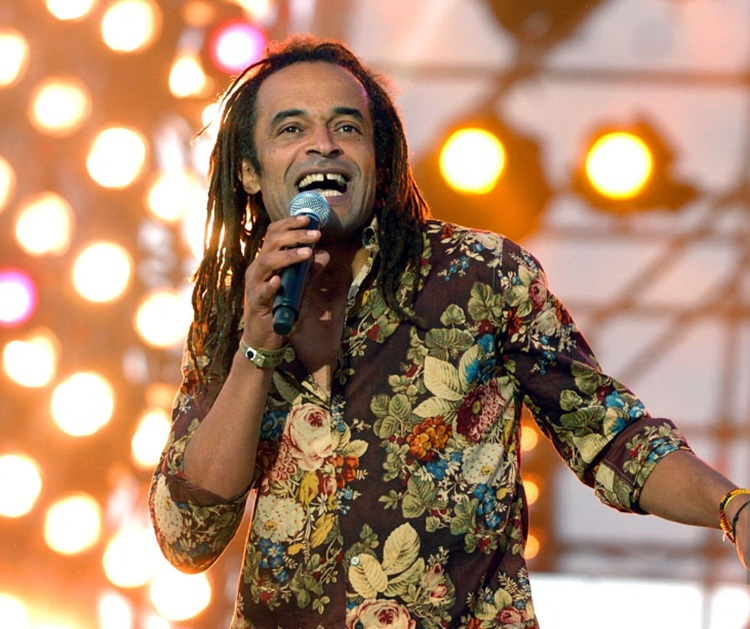
Q. If I was to ask you what would be more emotional, a huge crowd of 82,000 at Stade de France, which I know you have played in front of, or being on Court Philippe Chatrier at Roland Garros with a full house, what would you pick?
YANNICK NOAH: In terms of my well, when you walk on the court, you're not having a good time, man. It's not that you're walking in and saying, Oh, wow, that's so f*&king great.
It's like 2 1 in the first set. There's three more, four sets to go. Some of the people are screaming, so intense sometimes, anger and eager. Some of the people want you to lose the game. So, there is tension. I'm not having a good time playing.
The only good moment is a few seconds when you win the match point of the finals of the tournament. I just happen to win 23 tournaments, the bigger one being the French, but beside that, we're talking about a couple hundred of tournaments when I left when I lost. I didn't win the whole thing.
And winning, it's just like a split seconds, this joy, but nothing compared to this joy. There is nothing in life. And, yes, as I was telling Cecilia one day, she was, like, Darling, how does it feel, this moment? I said, I can't explain to you.
But, like, when I saw Joakim, I was there when Joakim was born, in the room. This moment when you see your child coming out, you know, I felt the same thing, like, Jesus, like anything can happen. This is, like, I'm in the sky. This is the closest moment that I had, but this is so short.
When I'm onstage, the second I get on stage, say, Hello, you're talking about you said, for example, Stade de France, you have 82,000 people. They love me. All these people love me. I don't know anyone buy a concert to see someone they don't like. So they love me. It's just this beautiful, sweet feeling of sharing this love for two and a half hours, and I'm having a good time.
From the first note to the last one, I'm having a good time, and it's very sweet. Again, it's two different things. I'm grateful that I got to live these two emotions.
One day I played in, I played in Bercy many times as a tennis player, and I didn't like the surface. Was too fast, it was indoor, I was not so good on fast indoor courts. But it was in Paris, so it was always the expectation of, oh, it's in Paris, he's going to do well. So when I played in Bercy, I played probably four, five times, I never played well. Never played well. And that was it. It happens.
I'm never nervous before a concert, never. Talking about maybe, like, 10 or 15 years ago, I had stopped my career 15 years before, and I go to Bercy, because I have like five concerts in Bercy, five days.
So I go in my bag, I get into the parking, the security people are the same. Hey, Yannick, how you doing? And I'm walking to what is supposed to be the dressing rooms but now it's like my little salon and everything. But as I'm walking, I feel stress. And I don't know why. And my manager said, Yan, you don't seem okay. What's wrong?
I said, I don't know. It's something. I don't feel good. I don't know. There's something. Then I don't know what happened, so I'm taking my glass of wine, it doesn't really go. So I say, okay, I might take another one.
So I take the second glass of wine, but then the concert is like 8:30, and at 8:28, I start hearing the people go "Yannick, Yannick," and I realize that the place of Bercy was surrounded was with a vibe of me losing. This place was connected with losing.
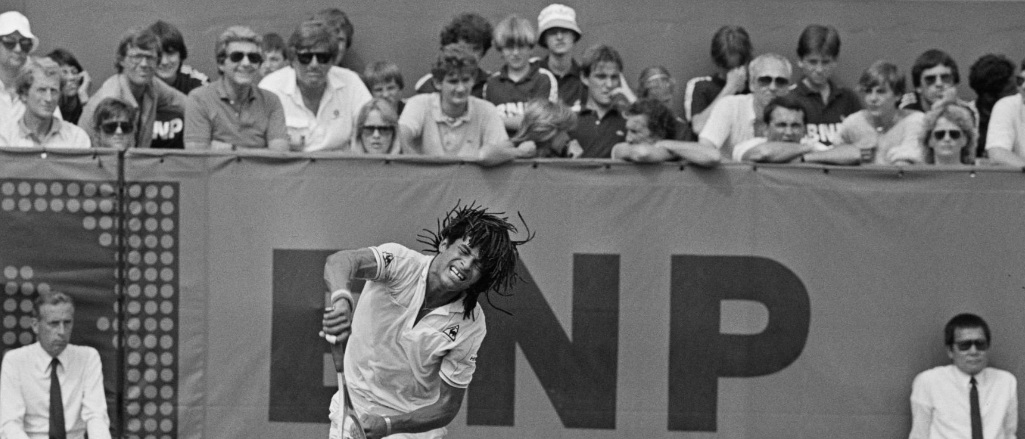
Q. Wow.
YANNICK NOAH: And all of a sudden, I say, no, has nothing to do with the place. It's the fact that the energy, that I couldn't bring my energy as a tennis player, but now, as a singer, I bring Yannick energy. And all of a sudden this thing totally left my body, and all of a sudden I went and I did a great concert.
I have that sometimes in certain places when I didn't play well, and I go there maybe just watching games. Like if I go to Wimbledon, I don't ah, I feel terrible. There's something. It comes with even the smell. I can smell it. Because it's for me it's like the smell of defeat, you know? It's weird.
Q. We have touched on Davis Cup and your captaincy in Davis Cup and now being captain of the French Billie Jean King Cup team, and captain of another team event, but your new role also as captain of France's wheelchair team, how does that feel? And what about captaining somebody like the No. 1, Ksenia Chasteau as part of that whole BNP Paribas Young Talent Team? What would you bring to that role?
YANNICK NOAH: Well, I mean, it's about transmitting. It comes to a moment where you transmit. I am not playing the legend tournaments anymore. I don't feel anything except, you know, when I play like shit now, can't move, it's all about the past, but I don't feel comfortable with that.
But I still, as an older guy, I have this joy and this possibility to transmit. And it's just like I used to be a son and now I'm a father and I'm a grandfather. So what do you do? You transmit, right?
And you can transmit through the experience that you had on the tennis court, and I did it at Davis Cup, I did it for the Fed Cup, and now I can do it with the wheelchair, because I feel that I can make a positive difference and have an impact on someone else.
That's the best part, because when they do well, I'm happy, you know, and I don't want to be in a situation when I'm like getting older and just, like, thinking and living to the past, you know. This keeps me into the now, in the present. I have challenges, like as I told you I was playing the festivals these days in Europe, in France, so I'm doing all these festivals around France. Like tomorrow I'm going to the French wheelchair championship in Roland Garros. I love that, because okay, I'm in the action of the now. I don't want to be in the past.
Q. Your children. Joakim obviously is the one that has had the most attention because of his results in basketball. But as an incredibly proud father and now grandfather, tell me about that feeling of being a father, being a grandfather, and your children.
YANNICK NOAH: I just want to make sure they're happy. A lot of people say, Oh, you have six children. Oh, Joakim is playing basketball. What are they doing? I say, Well, Joakim sometime play basketball, he was not happy.
I mean, playing tennis sometimes, probably the biggest depression I had in my life was when I was playing tennis. That was not just like this beautiful, colorful journey. It was difficult. I felt pain, you know. People nowadays talk more about the mental pressure that some of these athletes are living, because they can come out and talk about it. But I always worried, always worried about the wellness of my children regardless of what they do.
I have like six children. I'm, like, grandfather four times. We organize like every year, because they're all spread all over the world, so we organize every year, like every August every year we have family reunion for one month, so that's great. We get to enjoy each other.
I'm very happy, because, like, the whole, they are very, my kids, even my grandchildren, are very together. You know, we have a family, and I'm very proud of it. This is the thing I'm the most proud of, my family.

Q. And finally, Yannick...
YANNICK NOAH: Oh, I have a good story, like, I have a good story. Joakim called me last year with Lais, his wife. I love them so much. He called me. He said, Dad, call me. Urgent.
We have a video call and I call them, and they're together smiling. And he goes, Dad! Dad! You know what? You're gonna have a grandson (singing). I'm, like, Wow, that's so cool. Really?
He goes, Yeah, we just found out, you know. You're gonna have a grandson, dad.
I said, Oh, so great. I say, I have news for you. You're gonna have a sister (singing). That was funny. So basically his son is going to have an aunty at the same age.
Q. That's hysterical.
YANNICK NOAH: This is us. Anyway...
Q. And just finally, can life be any better for you?
YANNICK NOAH: Well, I'm grateful. I'm grateful. I'm really grateful. You know, I went through this crazy journey to be a professional tennis player, which was my dream as a kid, and then I had this fantasy to become a singer which I fulfill to this day.
I had some great adventures with, like, the French teams. I'm really happy, because, you know, after all this, the tennis, what I really love about the whole journey of tennis, like, even though I stopped like in 1990, I still have a lot of friends. I have real friends.
It's really funny the connection that some of us still have, you know, with Johnny Mac, with Bjorn (Borg), with Mats (Wilander), with Andres Gomez. The other day I ran into Hans Gildemeister. We almost cried. We hadn't seen each other for 20 years.
This thing, this camaraderie between us, this is something that I really appreciate the most, you know, in terms of my tennis life. And with the music, you know, you are connected with people through the songs. Some of the songs have impacted people's lives, you know. You still, there is something that I'm really happy, because I feel sometimes, I feel like a little youthful.
So, if I can help, I'm happy, whether it's to my music, whether it's to my foundations, whatever. If you have an impact in someone else, this is, for me, this is a true champion.
Somebody can have an impact, and we are coming back to Arthur. And Arthur, a lot of people probably don't know that he won, like, some Grand Slams, you know. People knew Arthur because he had an impact on others. This is, for me, the most important thing. And this is what being a champion is.


